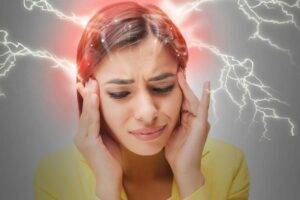There is a common belief that feeling drowsy or falling asleep after a meal may be a sign of diabetes. However, it is important to understand the facts behind this notion. This article aims to explore the relationship between post-meal drowsiness and diabetes, debunk the associated myth, and provide insight into recognizing the warning signs of diabetes.
Understanding Diabetes
Diabetes is a chronic condition characterized by the body’s inability to properly regulate blood sugar levels. There are two main types of diabetes: Type 1, which is often diagnosed in childhood, and Type 2, which typically develops in adulthood and is often associated with lifestyle factors. Key symptoms of diabetes include frequent urination, increased thirst, and fatigue. Early detection and management of diabetes are crucial for preventing complications.
Postprandial Somnolence and Its Causes
Postprandial somnolence refers to the drowsiness or sleepiness experienced after consuming a meal. This phenomenon can be attributed to various factors, including hormonal changes and the body’s digestive process. Common triggers for post-meal drowsiness include consuming carbohydrate-rich meals and large portion sizes, which can lead to a temporary increase in serotonin levels, contributing to feelings of relaxation and drowsiness.
Debunking the Myth
Contrary to popular belief, post-meal drowsiness is not necessarily a direct indicator of diabetes. While fatigue and drowsiness can be symptoms of diabetes, they are not exclusive to the condition. It is crucial to recognize that the primary indicators of diabetes include persistent high blood sugar levels, elevated HbA1c levels, and other specific diagnostic criteria. As such, falling asleep after eating should not be considered a definitive sign of diabetes.
Recognizing Diabetes Warning Signs
It is essential to be aware of the warning signs and symptoms of diabetes. These may include unexplained weight loss, blurred vision, slow wound healing, and a tingling sensation in the hands or feet. Monitoring blood sugar levels and recognizing patterns of fatigue and drowsiness can also provide valuable insights into potential diabetes-related concerns. Individuals experiencing concerning symptoms should seek medical advice promptly for proper evaluation and diagnosis.
Healthy Eating and Lifestyle Choices
Maintaining a balanced diet and making healthy lifestyle choices are essential for managing blood sugar levels and overall well-being. Consuming smaller, nutrient-dense meals and avoiding excessive carbohydrate intake can help prevent postprandial somnolence. Additionally, staying physically active and practicing mindful eating can contribute to better blood sugar control and overall health.
FAQ
- Q: Is feeling sleepy after eating a sign of diabetes?
A: Feeling sleepy after eating is a common occurrence and not necessarily a direct sign of diabetes. While fatigue can be a symptom of diabetes, it is important to consider other factors and specific diagnostic criteria for an accurate assessment. - Q: Can post-meal drowsiness indicate diabetes?
A: Post-meal drowsiness, also known as postprandial somnolence, is not a definitive indicator of diabetes. Although fatigue and drowsiness can be associated with diabetes, they are not exclusive to the condition and should be evaluated in conjunction with other symptoms and medical tests. - Q: What are the early signs of diabetes?
A: Early signs of diabetes may include increased thirst, frequent urination, unexplained weight loss, fatigue, blurred vision, and slow wound healing. These symptoms warrant prompt evaluation by a healthcare professional for proper diagnosis and management. - Q: How do I know if I’m at risk for diabetes?
A: Risk factors for diabetes include being overweight, leading a sedentary lifestyle, having a family history of diabetes, and belonging to certain ethnic groups. Regular health check-ups and discussions with healthcare providers can help assess individual risk factors. - Q: What role does diet play in managing diabetes?
A: Diet plays a crucial role in managing diabetes by helping control blood sugar levels. Consuming balanced meals with a focus on whole grains, lean proteins, fruits, and vegetables, and monitoring carbohydrate intake can contribute to better blood sugar control. - Q: Is there a connection between postprandial somnolence and blood sugar levels?
A: Postprandial somnolence can occur due to various factors, including hormonal changes and digestion processes, but it is not directly linked to blood sugar levels. Managing blood sugar levels involves monitoring glucose levels and considering overall dietary and lifestyle habits. - Q: Can falling asleep after meals be a result of overeating?
A: Yes, overeating, particularly meals high in carbohydrates and large portion sizes, can lead to post-meal drowsiness. Focusing on portion control and nutrient-dense foods can help prevent excessive drowsiness after eating. - Q: What steps can I take to prevent feeling excessively sleepy after meals?
A: To prevent post-meal drowsiness, consider consuming smaller, balanced meals, staying physically active, and avoiding heavy carbohydrate-rich foods. Additionally, practicing mindful eating and staying hydrated can contribute to feeling more alert after meals. - Q: Should I be concerned if I frequently feel extremely tired after eating?
A: Frequent extreme tiredness after eating may warrant further evaluation, especially if accompanied by other concerning symptoms. It is advisable to consult a healthcare professional to rule out underlying health conditions, including diabetes. - Q: How can I differentiate between normal post-meal tiredness and potential diabetes-related fatigue?
A: Differentiating between normal post-meal tiredness and potential diabetes-related fatigue involves considering the persistence and severity of symptoms, along with other indicators of diabetes. Monitoring overall energy levels and seeking medical advice for persistent or worsening fatigue is essential for a proper assessment.
Conclusion
In conclusion, the belief that falling asleep after eating is a definitive sign of diabetes is a misconception. While post-meal drowsiness may occur, it is not a reliable indicator of the condition. Understanding the true warning signs and symptoms of diabetes, prioritizing healthy eating and lifestyle habits, and seeking timely medical guidance are crucial steps in promoting overall wellness and effectively managing diabetes-related concerns. By dispelling misconceptions and promoting accurate information, individuals can take proactive steps towards their health and well-being.



